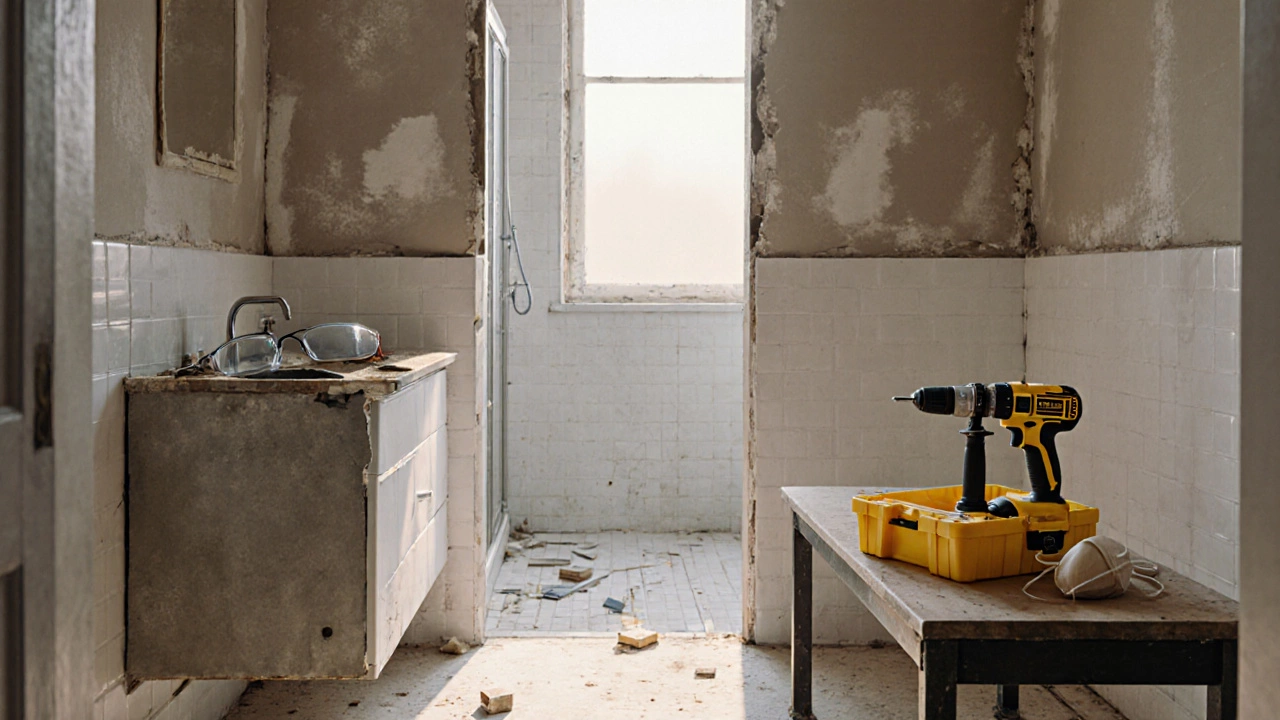Bathroom Remodel Cost Breakdown: What You Need to Know
When planning a bathroom remodel cost breakdown, a detailed analysis of every expense from demolition to final polish. Also known as bathroom renovation budget, it helps you see exactly where each pound goes before any work starts. Understanding this breakdown stops surprise invoices and lets you prioritize upgrades that add real value.
One of the biggest line items is plumbing, the network of pipes, fittings and labor needed to bring water in and waste out. Whether you’re relocating a shower, adding a new vanity, or upgrading to a water‑saving toilet, plumbing costs can swing wildly based on material choice and floor‑level access. Pair that with tiling, the process of installing floor and wall tiles, cutting them to fit, and sealing the joints, and you’ve got two cost drivers that often dictate the overall budget.
Key Cost Categories in a Bathroom Remodel
First, demolition and disposal set the stage. Removing old fixtures, tearing out plaster, and hauling waste usually costs £300‑£800, depending on size and access. Next, the plumbing phase includes new supply lines, shut‑off valves, and any rerouting needed for a new shower tray or bathtub. Expect £500‑£2,000 for basic updates, but high‑end fixtures or moving the wet zone can push that to £4,000+. After the water is in place, tiling takes over. Ceramic or porcelain tile runs about £30‑£70 per square metre for material, plus £25‑£45 per metre for labor. Complex patterns or large format tiles add a premium, sometimes doubling the price.
The third pillar is fixtures and fittings. A mid‑range vanity with a countertop can cost £400‑£1,200, while a luxury design with integrated lighting can exceed £2,500. Toilets range from £150 for basic models to £800 for smart, water‑saving units. Showers are a wide spectrum: a simple kit starts at £250, whereas a linear rainhead with a custom enclosure can top £3,000. Don’t forget accessories—towel rails, mirrors, and lighting—each adding £50‑£300.
Labor is the glue that holds everything together. Carpenters, electricians, and tilers each charge hourly rates that vary by region. In the UK, you’ll see £30‑£55 per hour for a qualified plumber, £25‑£45 for a tiler, and £35‑£60 for an electrician. A full bathroom remodel typically requires 2‑3 weeks of work, translating to £2,000‑£5,000 in labor costs. Managing the schedule tightly can save time and money, especially if you bundle trades through a single contractor.
Finally, think about contingency. Unexpected issues—like hidden water damage, asbestos, or structural quirks—can add 10‑20% to the original estimate. Building a buffer ensures you won’t be caught off‑guard when the contractor uncovers a problem behind the wall.
Putting these pieces together, a typical mid‑range bathroom remodel in the UK lands between £8,000 and £12,000. Luxury projects, especially those with high‑end fixtures and extensive rewiring, can climb above £20,000. The key is to break down each category, compare quotes, and decide where you want to splurge versus where you can save.
Below you’ll find a curated list of articles that dive deeper into each of these cost drivers—tips on choosing tiles, negotiating fixture prices, and avoiding common plumbing pitfalls. Use them to sharpen your budget plan and keep your remodel on track.

